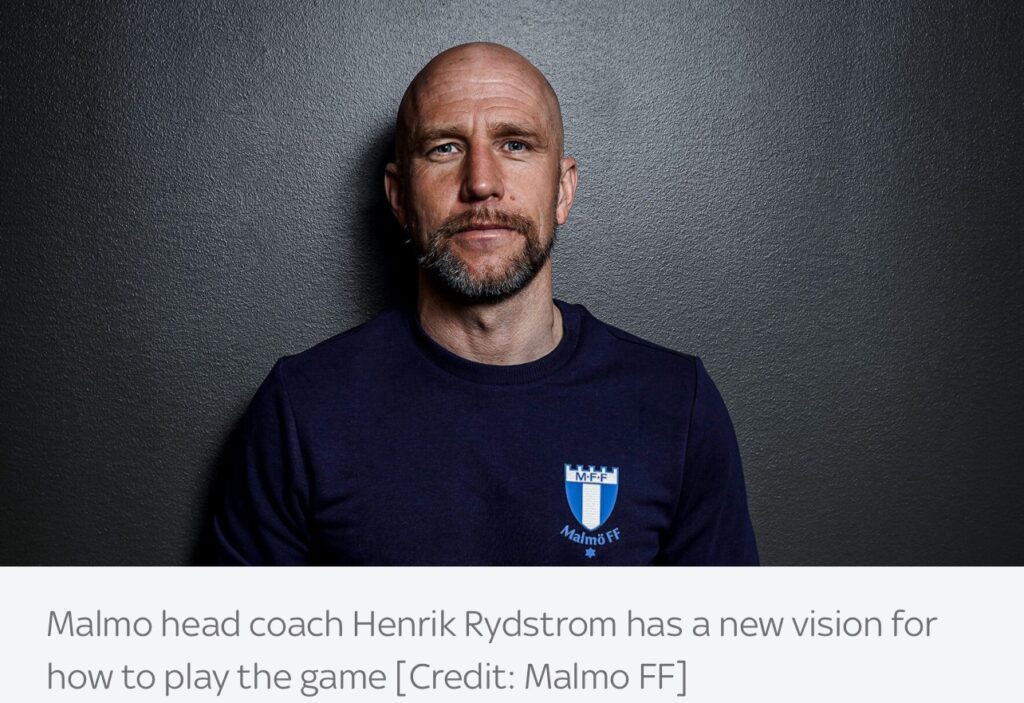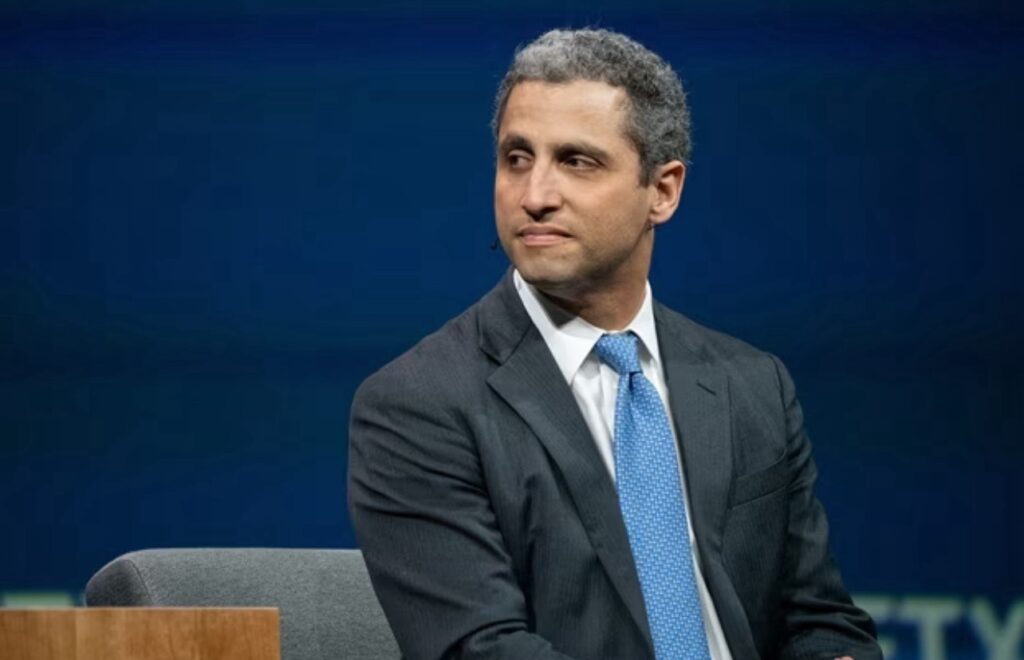“Sometimes coaches want to feel like God.” Henrik Rydstrom has rejected the idea of positional play and embraced a more anarchic structure – winning the Swedish title with Malmo. In this exclusive interview, he explains why there is another way…

The story of how Malmo’s Henrik Rydstrom became Europe’s most innovative coach begins in 2006. He is playing for Swedish side Kalmar against Dutch club FC Twente in the third round of the now-defunct Intertoto Cup. They have won the first leg 1-0.
The trip to the Netherlands for the return match will end in defeat. A humbling defeat, as Rydstrom remembers it. “We did not have the ball at all,” he tells Sky Sports. “We had been taught that football was all about defending, counter-attacks and set pieces.”
He pauses. “And then we felt there was another way to play.”
Rydstrom was 30 years old, a hard-working defensive midfielder starting to think about a different way of seeing the game. “I felt as a player it was too much about being safe, safe, safe, all the time. It was about not making mistakes,” he says.
It had been an epiphany of sorts but not much changed. “I kept playing for 10 more years and still it was always about defending or winning second balls,” he adds. “But that was the first step for me. I think it started to develop something inside of me.”
So far, so normal. Rydstrom would not be the first coach to instruct his players to adopt a brand of football different to the one they had played. The difference in this instance was that he would go on to pursue a style that virtually nobody else played.
Initially, he went with the positional game popularised by Pep Guardiola. The idea is that through set positions, a team maintains the spaces and creates advantages that way. “I was really positional. Stand there. Occupy the five corridors. Maximum width. All that.”
But then came epiphany number two. Twente had passed Kalmar off the park but what really had Rydstrom envious was not the discipline of their positioning but the sense of fun that comes with having the ball. He envisaged the game as an act of self-expression.
“That was also my feeling when we played – that we could do so much more than we were being allowed to do. When I played with my friends when I was younger, I played in a totally different way to how I played when I played professional football.”
It was studying Fernando Diniz that set him on a new path.
The Brazilian coach, who went on to win the Copa Libertadores with Fluminense last year, had begun to draw a cult following with his commitment to his alternative idea of football, one that would appear almost unrecognisable to European audiences.
“There were some clips starting to circulate on Twitter,” recalls Rydstrom. “The positions were like… messed up. What is this?”
Diniz, having been compared to Guardiola because of his penchant for playing out from the back, has stressed that he sees his football as the precise opposite. It was almost anti-positional because of his preference for extreme overloads with players drawn to the ball.
Rydstrom devoured information on Diniz, reading the writings of Jamie Hamilton – who coined the term relationism to describe it.
Read the article here: Europes most innovative coach
Source:SkySports
DHS and CBP have “detained over $2.6 billion of cargo in less than two years under this (UFLPA) act — thousands of shipments of tomatoes, cotton products, apparel, polysilicon, aluminum and metals, automotive parts and agricultural products.”

Read this interview with Robert Silvers of the US Department of Homeland Security discusses enforcement of the Uyghur Forced Labor Prevention Act.
Source:rfa
Logistics in Asia Pacific is already in a state of flux that’s creating bottlenecks and affecting the bottom line. Experts predict this upheaval will only increase as the year moves ahead. What are the causes of this turmoil? The pertinent answer to this question ranges from an unstable global order, more extreme weather events, accelerating technological change and economic uncertainty.

Upgrade yiyr supply chain resilience to overcome the logistics challenges posed by 2024.
For more on resilience-building strategies, get access to our latest Blue Paper
Read more here: Maersk Bluepaper on Resilience






You must be logged in to post a comment.